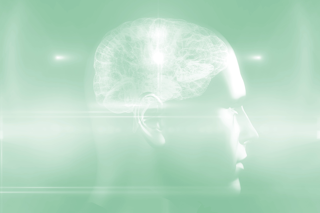
Understanding some brain basics helps you understand symptoms when your brain isn’t working right. The brain is our heaviest and most complex organ, using most of the body’s oxygen and about 30 percent of its energy supply.
The brain is divided into sections, each in charge of different functions although all working together. In functional neurology, we can identify areas of poor brain function and help you get them working better again with customized therapy and rehabilitation.
Frontal lobe
The frontal lobe is the area of your forehead that stretches between the temples. The human frontal lobe distinguishes us from other animals and governs much of our personality, impulse control, and the ability to reason. A frontal lobe injury can completely change your personality and ADHD is understood to affect the frontal lobe.
The frontal lobe also governs emotional drive, motivation, and planning. Poor frontal lobe function can result in an inability to set goals or follow through on projects or plans. You may feel lazy, unmotivated, or depressed if so. In fact, depression is simply a frontal lobe impairment.
The frontal lobe activates the muscles. Poor frontal lobe function can result in moving more slowly or not swinging your arms when you walk.
Fine-motor coordination also falls under the frontal lobe’s duties. This is needed for handwriting, embroidery, and other detailed movements of the hands. As the frontal lobe degenerates it’s typical for handwriting to worsen.
Symptoms and signs of possible frontal lobe impairment
- Slower and less powerful muscle movements
- Depression
- Mental sluggishness and laziness
- Poor impulse control
- Poor social behavior and judgment
- Poor handwriting
- Poor cognitive function, such as poor math or planning skills
- Trouble learning complex things, such as math, new languages, or philosophy
- Poor muscle-coordination
Temporal lobe
The temporal lobes are located on either side of the brain above the ears. They govern hearing, speech, memory, emotions, and distinguishing smells.
Tinnitus (ringing in the ear) is a common symptom of temporal lobe dysfunction, although not all tinnitus is due to temporal lobe degeneration, as is difficulty distinguishing between different tones.
Within the temporal lobes is the hippocampus, the seat of learning and memory. Degeneration of the hippocampus leads to poor memory and eventually Alzheimer’s disease.
It is also involved with spatial orientation, sense of direction, and circadian rhythm (sleep-wake cycle).
Symptoms and signs of possible temporal lobe impairment
- Poor memory
- Difficulty hearing with background noise
- Episodes of tinnitus
- Abnormal shifts of fatigue throughout the day
- Ongoing episodes of insomnia
Parietal lobe
The parietal lobes are located behind the ears and perceive and interpret sensations such as touch, pressure, texture, weight, size, or shape. The parietal lobe function also tells the body where it is in its environment. Reoccurring injuries are common with parietal lobe impairment.
Symptoms and signs of possible parietal lobe impairment
- Feeling unstable in darkness or with thick or high-heel shoes
- Misjudging where your body is in relation to your environment
- Unable to recognize objects through touch
- Difficulty perceiving where your limbs are and becoming prone to falls and sprains
Cerebellum
Your cerebellum is two lobes at the back of the head, directly above your neck. It calibrates muscle coordination and balance and filters information before sending it to the brain.
Symptoms and signs of possible cerebellum impairment
- Episodes of dizziness or vertigo
- Nausea from visual inputs (car sickness)
- Poor balance
- Subtle shakes at the end stage of hand movement
Occipital lobe
The occipital lobe is in the back of the brain and processes visual information.
Symptoms of possible occipital lobe impairment
- Difficulty processing visual information and recognizing shapes, colors, and motion
- Visual hallucinations
- Visual floaters
- Visual persistence or reoccurrence of the visual image after it has been removed
Any of the above symptoms in adults usually mean degeneration in those areas of the brain while in children it can signal poor brain development. If your overall brain function is declining, you may have many of these symptoms.
The good news is the brain is very receptive to improving with the right nutrients and input. Functional neurology excels in identifying areas of brain dysfunction and customizing brain rehabilitation specifically for your brain. Ask my office for more information.



Latest from the Blog
The Death of Red Dye #3
January 15, 2025What Is Red Dye No. 3? Red Dye No. 3, or Erythrosine, is a synthetic food color derived from coal tar. It was first approved by the FDA in the 1950s and quickly became one of the most popular artificial colors in food and cosmetics. Red Dye No. 3 was used in everything from candies, […] Read more
Latest from the Blog
Do You Know What Is In Your Protein Powder?
What’s Really in Your Protein Powder? Understanding the Risks Protein powders are a staple in many health-conscious diets, from athletes seeking muscle recovery to those simply aiming to boost their daily protein intake. With a wide variety of options available, choosing the right one can feel overwhelming. However, recent findings have raised concerns about what’s […] Read more